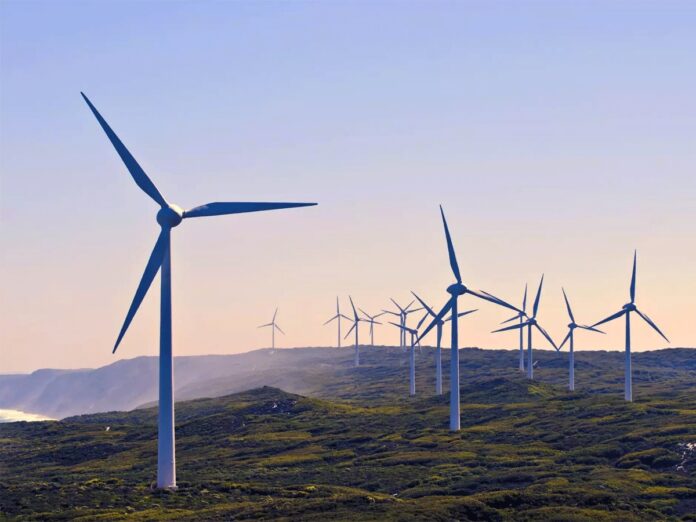New Sri Lankan Government Reconsiders Approval of Adani’s Wind Power Project
Sri Lanka’s newly elected government, under President Anura Kumara Dissanayake, is reevaluating the previous administration’s approval of Adani Group’s wind power project. The decision to reconsider the project, announced to the country’s Supreme Court, aligns with Dissanayake’s electoral promises, where he pledged to cancel the controversial deal if elected. This development raises questions about the future of the Adani Group’s involvement in Sri Lanka’s renewable energy sector and its broader investments in the country.
The Controversial Wind Power Project
In 2022, the Adani Group, a multinational conglomerate based in India, had announced a $440 million investment to develop a 484-megawatt (MW) wind power project in Sri Lanka’s northeastern regions of Mannar and Pooneryn. This project was expected to contribute significantly to the island nation’s renewable energy goals by harnessing wind power in these coastal areas. However, it quickly became the subject of controversy, primarily due to concerns over transparency in the approval process and the agreed-upon terms.
Petitioners who brought the case to Sri Lanka’s Supreme Court alleged that the bidding process lacked transparency and fairness. They claimed that the previous administration granted the project to Adani Green Energy, a subsidiary of the Adani Group, without proper competitive bidding, which raised concerns about corruption and favoritism. Additionally, critics argued that the tariff agreed upon for the project, at USD 0.0826 per kilowatt-hour (kWh), was too high and would result in financial losses for Sri Lanka. They suggested that the tariff should be reduced to USD 0.005 per kWh to ensure the project’s economic viability.
President Dissanayake’s Stance
Anura Kumara Dissanayake, the leader of the National People’s Power (NPP) alliance, made his opposition to the Adani wind power project a central theme of his election campaign. In the lead-up to the September 2024 presidential election, Dissanayake vowed to cancel the project if elected, citing the lack of transparency and the potential financial burden on the country. His stance resonated with voters who were frustrated by perceived mismanagement and corruption in previous administrations.
Dissanayake’s victory in the election has now brought these promises into focus, and his government’s decision to revisit the project’s approval is seen as an effort to deliver on his campaign commitments. By bringing the matter before the Supreme Court, the new administration seeks to address the concerns raised by the petitioners and determine whether the project can be renegotiated or scrapped altogether.
Broader Implications for Adani Group
The Adani Group’s involvement in Sri Lanka extends beyond the wind power project. In 2021, the conglomerate secured a contract to develop and operate the West Container Terminal (WCT) at Colombo Port, one of the busiest transshipment hubs in the region. This project, a joint venture with Sri Lanka’s John Keells Holdings and the Sri Lanka Ports Authority (SLPA), involves an investment of around $700 million, with the Adani Group holding a 51% stake in the terminal.
The development of the WCT was seen as a strategic move to balance China’s growing influence in the region, as China had previously invested in the nearby Colombo International Container Terminal (CICT) and the controversial Hambantota Port. The WCT project aimed to enhance Sri Lanka’s port capacity and strengthen its position as a key player in global trade.
However, the scrutiny surrounding the wind power project could cast a shadow on the Adani Group’s other ventures in Sri Lanka. If the wind project is canceled or renegotiated under unfavorable terms, it could affect the group’s broader business interests in the country. Furthermore, the new government’s approach to foreign investments may signal a shift in Sri Lanka’s stance on large-scale infrastructure projects, especially those involving foreign entities.
Future of Renewable Energy in Sri Lanka
The reconsideration of the Adani wind power project comes at a time when Sri Lanka is striving to meet its renewable energy targets. The country has set ambitious goals to increase its reliance on renewable energy sources, such as wind, solar, and hydropower, to reduce its dependence on imported fossil fuels and address climate change. The Mannar and Pooneryn wind power project, with its potential to generate nearly 500 MW of clean energy, could play a crucial role in these efforts.
However, the challenges posed by political opposition, transparency concerns, and economic feasibility must be addressed to ensure the success of such projects. For Sri Lanka, attracting foreign investment in renewable energy is critical, but it must be done in a way that aligns with national interests and ensures long-term benefits for the country’s economy and environment.
Conclusion
The new Sri Lankan government’s decision to reconsider the approval of Adani’s wind power project marks a significant moment in the country’s approach to foreign investments and renewable energy development. While the project has the potential to contribute to Sri Lanka’s renewable energy goals, concerns over transparency and economic viability have cast a shadow over its future.
President Anura Kumara Dissanayake’s commitment to revisiting controversial deals reflects his administration’s focus on accountability and public interest. As the Supreme Court deliberates on the matter, the outcome could have far-reaching implications for Sri Lanka’s energy sector, foreign investment policies, and the Adani Group’s presence in the country. How the government navigates these challenges will shape the country’s renewable energy landscape and its broader relationship with international business in the years to come.

